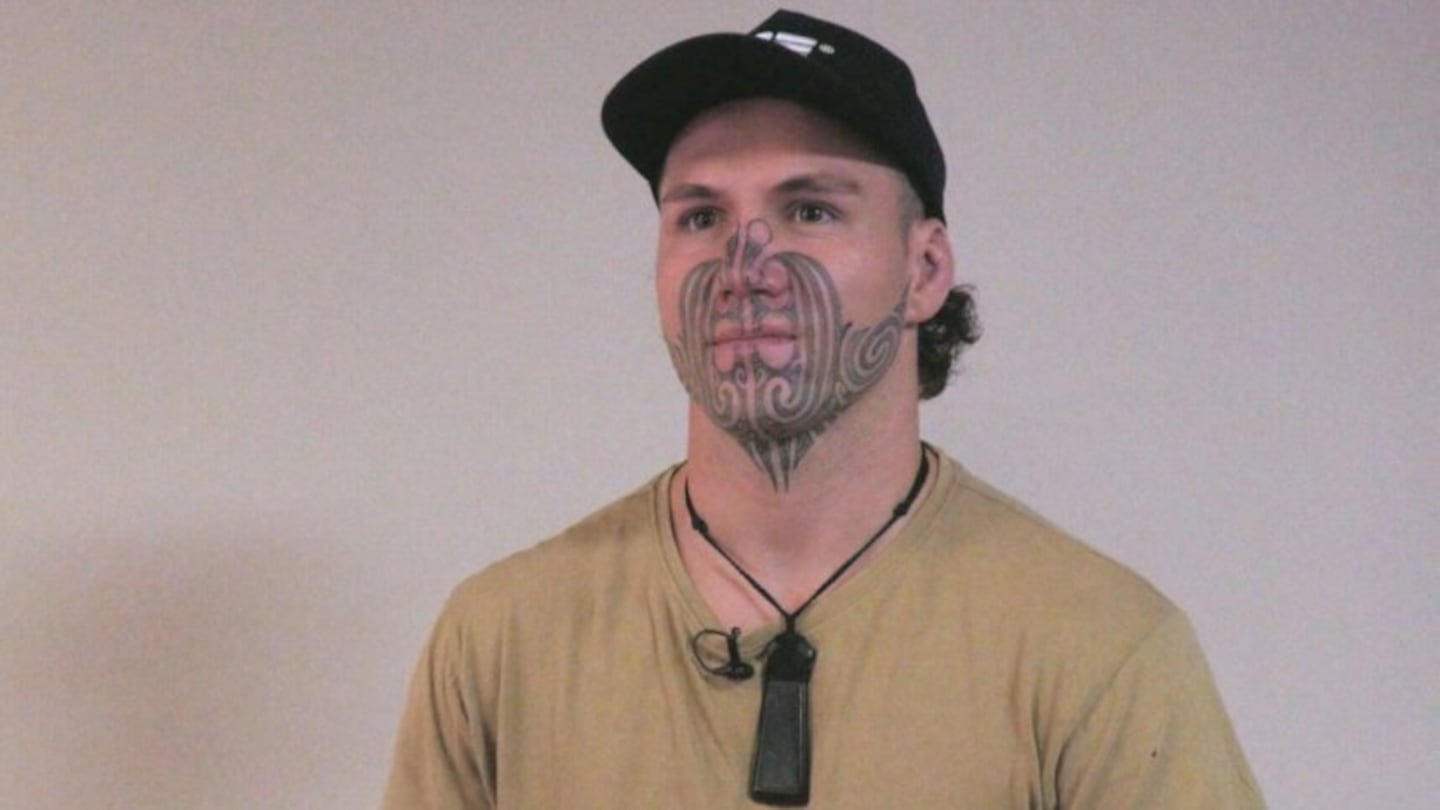Undefeated professional mixed martial arts fighter Aaron Tau is, simply, proud to be Māori.
That pride was exemplified when he received his mataora at the end of March, surrounded by whānau and friends in Kaitāia, by whanaunga and tā moko artist Anikaaro Harawira.
According to Tau, he is the first of seven generations in his lineage to have a mataora.
He’s also one of the first, if not the first, professional fighter to have a mataora too, and that’s gone hand in hand with him normalising being Māori.
Talking to teaomāori.news, Tau says receiving his mataora was a way to bring his whānau, hapū, iwi and te ao Māori with him wherever his fight career and life takes him next.
“[It’s about] taking it to the places where I can show the world our culture. I can take all those things that embody te ao Māori and show the world how we are.
'Greater sense of purpose'
“It’s definitely given me a greater sense of identity, a greater sense of purpose and it’s narrowed my focus a lot because I now have something greater than myself, which, to me, is the highest of highs you can get.”
Of Ngāpuhi and Ngāti Toro descent, Tau’s mataora represents his whakapapa through Ngāpuhi’s founding ancestor Rāhiri and his two wives, Āhuaiti and Whakaruru.
When it comes to fighting, wearing it doesn’t change his āhua. If anything, it solidifies his whakaaro about proudly being Māori in any space.
Tau’s mataora came after fellow Māori UFC fighters Kai Kara-France and Dan Hooker proudly got their first tā moko in months past.
Making that day more special was having Hooker present with Tau to see him get his mataora. Hooker coached Tau towards becoming a two-division champion in the XFC and undefeated in his seven-fight career since being taken under his wing nearly four years ago.
'Won't be the last'
“I try not to put any prestige on myself. A kūmara doesn’t tell people that it’s sweet. The fact that I get to carry this is an honour. Whether I was the first or the last, to me it’s an honour either way.
"There's definitely a lot of mana that comes with it… I am the first even though that shouldn't be important. It's important for all of us that someone is the first.
“I might be the first but I definitely won’t be the last.”
And while receiving his mataora is part of his journey, the end goal he first set himself when training under Dan Hooker remains the same: joining the UFC roster.
Tau says, “It’s going to be cool taking a mataora to the world stage. I have a few tricks up my sleeve, real Ngāpuhi Nui Tonu ideas… I don’t want to give too much away but you’ll definitely see it in the future. You’ll see that Ngāpuhi flare, that Māori flare.
“We’ve got Kai Kara-France here, Shane Young, they’ve gone to the world stage and definitely given people a taste of te ao Māori but I’m hoping to raise it to another level… and remind everyone where the greatest warriors come from.”
Adesanya acknowledges Aaron
As ready as Tau was the day he got his mataora, he’s more than prepared for the opinions that may come his way, whether it be from media, fans and opponents.
“Positive or negative, it’s about having the conversation and the more that people talk about it, the more exposure it gets. If people want to question my identity, who I am, I welcome it.
“If you really have a problem with these things, we can talk about it. The more you talk to me, the more that you understand who I am.”
And training in one of the elite fighting gyms in Oceania, City Kickboxing, is evidence for Tau that he can proudly be Māori but also that anyone, no matter what their culture, can proudly be themselves.
He reflected on the moment that UFC middleweight champion Israel Adesanya greeted Tau with a hongi the first time he entered the gym with his new look, acknowledging each other as men both proud of their cultures.
“[Israel] embodies his culture the same way and he’s leading the way in that respect. I think the more that Kai and Dan start living through their culture too, the more everyone else does it.
“The more you shine your own light, the more comfortably everyone else shines theirs.”




